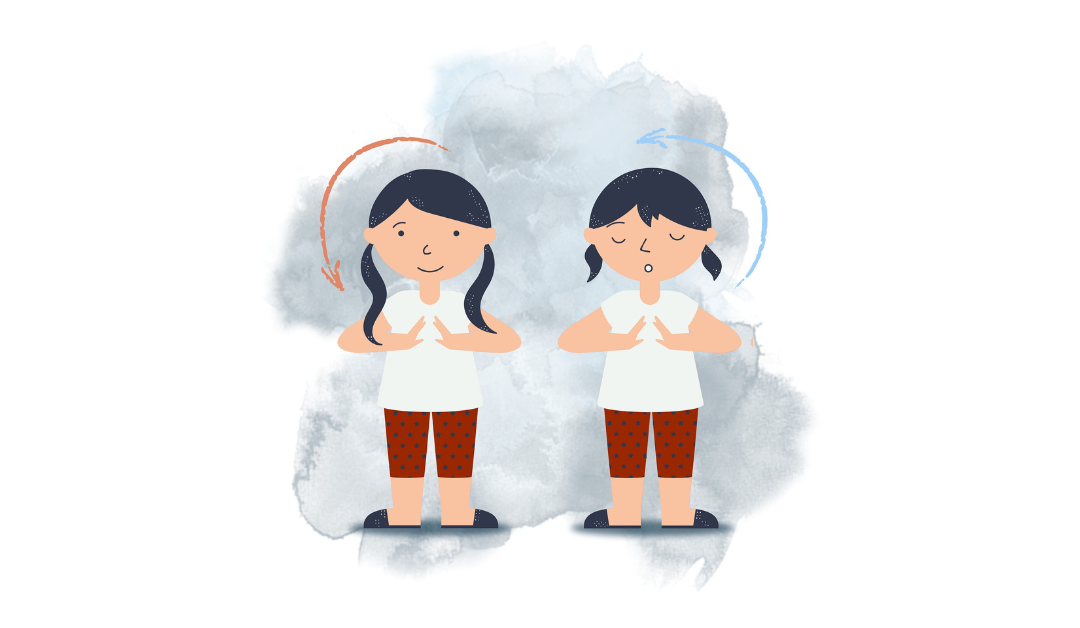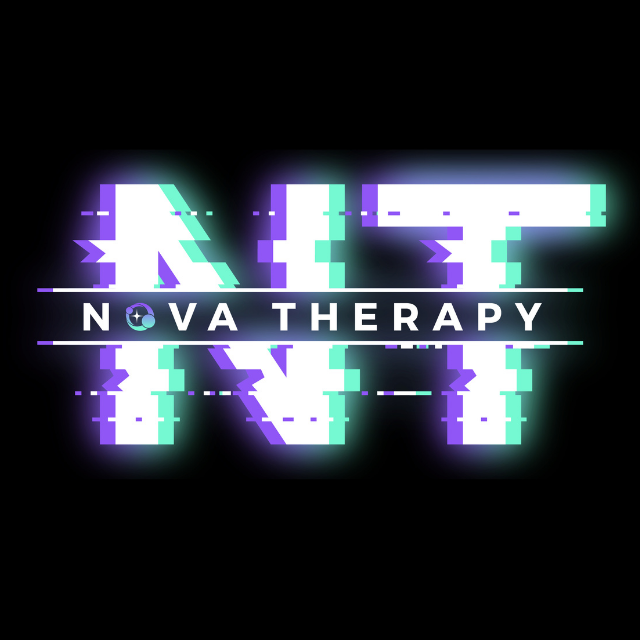
by Calien Trevino | Aug 22, 2024 | Anxiety, General
Hey there!
If you’ve ever found yourself constantly worrying about someone else’s feelings or needs—sometimes at the expense of your own—you might be dealing with codependency. Don’t worry; it’s way more common than you think. Let’s break it down and explore how to recognize, manage, and eventually break free from this cycle to foster healthier relationships.
What is Codependency?
Codependency is like that friend who seems super helpful but ends up taking over your life. It’s a pattern where you might prioritize someone else’s needs and emotions over your own, often to your own detriment. This dynamic usually happens in close relationships, whether it’s with a partner, family member, or friend.
Think of it as:
You feeling responsible for someone else’s happiness, even if it means sacrificing your own well-being. Over time, this can lead to a loss of self-identity, where you start to base your worth on how much you can do for others.
Signs You Might Be Codependent
- You’re the “Fixer”: Do you feel the need to solve everyone’s problems, even when they don’t ask for help?
- Difficulty Saying No: If you’re always saying yes, even when you’re exhausted or overwhelmed, that’s a red flag.
- Neglecting Your Own Needs: You might find that your own needs—whether emotional, physical, or mental—take a backseat.
- Feeling Incomplete Without Approval: Your mood might heavily depend on how the other person is feeling or treating you.
Why Does Codependency Happen?
Codependency often stems from experiences in early life. Maybe you grew up in an environment where you felt responsible for others’ happiness, or perhaps you learned that love and care meant putting others first, always. While these patterns are often unintentional, they can carry over into adulthood, influencing how you relate to others.
How Codependency Impacts Relationships
The impact of codependency on relationships can be pretty significant:
- Imbalance of Power: In a codependent relationship, one person may become overly dependent on the other, creating an unequal dynamic. The codependent person might feel responsible for maintaining the relationship, while the other might start taking advantage of this.
- Loss of Individuality: Over time, codependency can cause you to lose your sense of self. You might start to merge your identity with the other person’s, forgetting what makes you unique. This can lead to resentment or feelings of being trapped.
- Emotional Exhaustion: Constantly putting someone else’s needs before your own is draining. This can lead to burnout, where you feel emotionally and physically exhausted, which in turn strains the relationship.
- Stunted Personal Growth: When you’re focused on someone else’s problems, it leaves little room for your own growth. This can prevent both individuals in the relationship from evolving and achieving their full potential.
- Difficulty in Communication: Codependency often leads to unspoken expectations and assumptions. This lack of clear communication can result in misunderstandings, frustration, and conflict, making it harder to address issues in a healthy way.
Breaking the Cycle
Recognizing you’re in a codependent relationship is the first step. Here’s how to start changing the dynamic:
- Set Boundaries: It’s okay to say no! Start small, and practice asserting your needs and limits. Remember, boundaries are not about pushing people away—they’re about protecting your energy.
- Focus on Self-Care: Prioritize your own well-being. Whether it’s taking time for a hobby, seeking therapy, or just chilling with a good book, nurturing yourself is crucial.
- Cultivate Independence: Reconnect with what makes you, you. Explore your interests, passions, and goals that don’t involve anyone else.
- Seek Support: Sometimes, breaking the cycle requires a little help. A therapist or a support group can provide the tools and encouragement you need to shift the pattern.
Moving Toward Healthier Relationships
Breaking free from codependency is a journey. It’s about learning to value your own needs and emotions just as much as you value others’. Healthy relationships are built on mutual respect, where both people support each other’s independence while also coming together.
Remember:
You deserve relationships that uplift you, not ones that drain you. By recognizing and addressing codependency, you’re taking a huge step toward a more balanced, fulfilling life.
If you would like to address codependency concerns, visit us at www.novatherapypllc.com to get started.

by Calien Trevino | Aug 8, 2024 | Anxiety, General, Trauma- and Stressor-Related Disorders
Life’s hectic, right? Between juggling work, social life, and trying to squeeze in some self-care (hello, face masks and binge-watching), it’s easy to feel overwhelmed. But what if I told you there’s a super simple, totally free way to calm your mind and body in just a few minutes? Enter the 444 Box Breathing technique—your new BFF for stress relief.
So, What Exactly Is 444 Box Breathing?
It’s as simple as it sounds. The “444” stands for four counts in each step: inhale, hold, exhale, and then hold again. You do each for four seconds, and voilà—you’ve completed a cycle. Repeat this a few times, and you’ll start feeling like you’ve just finished a mini-meditation session.
Here’s how you do it:
- Inhale slowly through your nose for 4 seconds.
- Hold your breath for 4 seconds.
- Exhale slowly through your mouth for 4 seconds.
- Hold your breath again for 4 seconds.
That’s it. Seriously. So easy, you can do it anywhere—at your desk, in the car, or even during that awkward small talk at the grocery store.
Why It’s a Game-Changer
- Bye-Bye Stress
Ever notice how your breath speeds up when you’re stressed? The 444 Box Breathing technique helps you slow everything down. It tells your body, “Hey, chill out, we got this.” As you focus on your breathing, your heart rate drops, and your mind starts to clear up. It’s like pressing the reset button on a frazzled brain.
- Improves Focus
Whether you’re grinding through a tough work project or trying to nail that tricky yoga pose, this breathing technique can sharpen your focus. By practicing this regularly, you train your brain to stay calm and collected, which means less distraction and more productivity.
- Boosts Mood
Deep breathing isn’t just about calming down—it also helps lift your spirits. The increase in oxygen flow to your brain can make you feel more alert and positive. So next time you’re feeling a bit blah, try a round of 444 and notice the mood shift.
- Better Sleep
Struggling to fall asleep? (We’ve all been there, staring at the ceiling, replaying awkward conversations from 2010.) The 444 Box Breathing technique can help lull you into a more relaxed state, making it easier to drift off into dreamland.
How to Fit It into Your Day
Here’s the best part—you don’t need a fancy setup or a lot of time to practice this. Sneak it in wherever you can:
- Morning Routine: Start your day with a clear mind.
- Midday Break: Use it to recharge during lunch.
- Before Bed: Unwind and prepare for a restful night.
If you’re someone who needs a bit of structure, try setting a reminder on your phone or pairing it with another habit (like your morning coffee or evening skincare routine). The more you do it, the more natural it will feel.
The Takeaway
Life throws a lot at us, but with the 444 Box Breathing technique, you’ve got a simple tool to help you navigate it all. It’s quick, easy, and can make a real difference in how you handle stress, stay focused, and feel overall. So next time you’re feeling overwhelmed, remember: just breathe, 4-4-4, and let the calm take over.
Got a few minutes? Why not give it a try right now? You might be surprised at how good it feels. Feel free to check out Cat demonstrate the 444 breathing technique on our Nova Therapy: Nova Talk Podcast here: https://podcasters.spotify.com/pod/show/novatherapytx

by Calien Trevino | Jul 17, 2024 | General
Hey there, fellow seekers of serenity!
Life can get pretty overwhelming sometimes, right? Between work, social obligations, and trying to keep up with the latest Netflix series, it’s easy to feel burnt out. That’s why finding those special places to reset and recharge is crucial. Today, I’m sharing my favorite mental health reset spots that never fail to bring me back to my zen state. Feel free to steal these ideas or get inspired to find your own sacred spaces!
1. Buffalo Bayou Park – Houston, Tx
There’s something incredibly calming about being surrounded by nature. For me, Buffalo Bayou Park is the ultimate escape. It’s one of my favorite places to clear my mind. Whether I’m taking a leisurely stroll, having a solo picnic, or just lying on the grass with a good book, this place always helps me reconnect with myself.
Why I love it:
- Tranquility: The sound of birds, rustling leaves, and the gentle breeze is pure bliss.
- Accessibility: It’s close enough for a quick visit whenever I need a break.
- Activities: From yoga to people-watching, there’s always something to do.
Check it out here: 3502 Allen Pkwy, Houston, TX 77019
2. Ghoul Coffee Company – Austin, Tx
When I need a change of scenery, Ghoul Coffee Company is my go-to spot. The dope atmosphere, delicious coffee, and friendly baristas make it the perfect place to unwind and reset. The owner envisioned creating a space where people could not only enjoy exceptional coffee but also find solace and connection—a place where every sip carried the promise of joy and support for mental well-being…and he’s definitely achieved that!
Why I love it:
- Their Mission: To combat mental health and spread happiness with every cup they brew.
- Uniqueness: Their unique coffee selection is something I cannot find at other coffee spots.
- Community Vibes: It’s a great place to feel connected, even if you’re there alone.
Check them out here: https://www.instagram.com/ghoulcoffeecompany/
3. Houstonian Esthetician – Houston, Tx
Taking care of my skin is a crucial part of my self-care routine, and Desiree always knows how to make me feel pampered and refreshed. Regular visits help me unwind and boost my confidence…a much needed reset. After all…when you look good you feel good!
Why I love it:
- Expertise: Desiree has a magical touch and always knows what my skin needs.
- Ambiance: The relaxing environment makes it easy to leave stress at the door.
- Results: I always leave with glowing skin and a big smile.
Check her out here: https://www.instagram.com/houstonian_esthetician/
4. Cancun, Mexico
Whether I’m swimming, sunbathing, or simply listening to the waves, Cancun beaches always rejuvenates my spirit. There’s something incredibly soothing about the sound of waves and the feel of sand between my toes. I know Cancun isn’t just around the corner, but it’s my favorite low-cost beach spot where I can relax, sunbathe, and let all my worries wash away with the tide. I make the trip once a year to escape the hustle of daily life. And the stunning sunsets here are just the cherry on top.
Why I love it:
- Serenity: The sound of water is incredibly soothing.
- Scenery: The beautiful views and crystal clear blue water never fail to lift my mood.
- Activities: Swimming, reading, or just meditating by the water are all perfect ways to reset.
Check out my absolute favorite resort: https://www.hyatt.com/en-US/hotel/mexico/hyatt-zilara-cancun/cunia?src=corp_lclb_gmb_seo_cunia
4. Estes Park, Colorado
Whenever I need a change of scenery and a dose of adventure, I pack my bags and head to the breathing taking views of Colorado. Hiking has always been my go-to activity for clearing my mind, getting some fresh air, and just enjoying the beauty of the outdoors. These mountains offer everything a hiker could dream of: breathtaking views, diverse terrain, and a sense of tranquility that’s hard to find elsewhere. Whether you’re an experienced hiker or just starting out, this place has something for everyone. Every visit leaves me feeling rejuvenated and inspired.
Why I love it:
- Serenity: If you’re anything like me, you know that there’s something incredibly therapeutic about hiking.
- Scenery: The beautiful views never fail to lift my mood.
- Activities: Meditating or screaming your lungs out on the top of a mountain are all perfect ways to reset in my opinion.
5. Nova Therapy – Texas
We all know how important it is to take care of our mental health, but sometimes life gets in the way, making it hard to find the time or energy to visit a therapy center in person. That’s why I’m so grateful for virtual therapy. Virtual therapy has been a lifeline for me, providing the support and guidance I need to maintain my mental health and achieve a much-needed reset. Nova Therapy has been instrumental in this journey for others, offering convenience, personalized care, and a wide range of resources. If you’re considering virtual therapy, I highly recommend giving Nova Therapy a try – it might just be the reset you need.
Check Nova Therapy, PLLC out here: https://www.novatherapypllc.com
Final Thoughts
These spots are my personal favorites, but I encourage you to explore and find your own happy places. Everyone needs a mental health reset from time to time, and finding your personal oasis is key. I hope my favorite spots inspire you to discover places that help you recharge. Remember, taking care of your mental health isn’t just a luxury—it’s a necessity.

by Calien Trevino | Jul 1, 2024 | Anxiety, Eating Disorder, General
Hey there, virtual pals! 🌐 Let’s talk about something that’s as common as our morning coffee and as addictive as that last episode of your favorite Netflix series: social media. From Instagram to TikTok, Facebook to Twitter (or should we say X?), social media platforms are a huge part of our daily lives. But how does this constant connectivity impact our mental health? Let’s dive in!
The Good: Connection and Community
Let’s start on a positive note. Social media can be a beautiful thing. It allows us to stay in touch with friends and family across the globe, find like-minded communities, and even learn new skills. Need a recipe for tonight’s dinner? Check Pinterest. Want to keep up with your high school buddies? Facebook’s got you covered. Feeling a bit low and need some cute dog videos to cheer you up? Hello, Instagram Explore page!
These platforms can offer a sense of connection and belonging, which is crucial for our mental well-being. They can be particularly beneficial for those who might feel isolated in their offline lives. Social media can provide a lifeline, a way to reach out and say, “Hey, I’m here, and I need to talk.”
The Bad: The Comparison Trap
But, like all good things, there’s a flip side. Ever found yourself scrolling through Instagram, only to feel a pang of envy at someone’s seemingly perfect life? Welcome to the comparison trap, my friend. Social media can create an illusion of perfection that’s hard to live up to. Those filtered, curated snapshots of people’s lives can make us feel like we’re not enough, that our lives are boring in comparison.
This can lead to feelings of inadequacy, low self-esteem, and even depression. It’s easy to forget that what we see online is often a highlight reel, not the full story. That influencer with the perfect skin? They have bad days too. That couple always posting cute pictures? They probably argue sometimes.
The Ugly: Anxiety and Addiction
Then there’s the anxiety that comes with social media use. Ever heard of FOMO (Fear of Missing Out)? It’s real, and it’s pervasive. Seeing friends hang out without you, witnessing events you weren’t invited to, or simply feeling like you need to keep up with the latest trends can all contribute to anxiety.
And let’s not forget the addiction aspect. Social media platforms are designed to keep you hooked, with endless scrolling, notifications, and the dopamine hit from likes and comments. This can lead to a never-ending cycle of checking, refreshing, and seeking validation from our online presence, often at the expense of our real-world interactions and mental peace.
Finding Balance: The Middle Path
So, what’s the takeaway here? Social media isn’t inherently good or bad—it’s all about how we use it. Here are some tips to maintain a healthy relationship with your screens:
- Limit Your Time: Set daily limits on your social media use. Most smartphones now have built-in tools to help with this.
- Curate Your Feed: Follow accounts that make you feel good and unfollow those that don’t. It’s your feed, after all.
- Be Mindful: Pay attention to how you feel during and after using social media. If it’s making you anxious or unhappy, it might be time for a break.
- Engage Meaningfully: Use social media to connect with others, not just to consume content passively. Engage in conversations, share your thoughts, and be real.
- Disconnect to Reconnect: Take regular breaks from social media to engage with the world around you. It can be refreshing to experience life without the filter.
In conclusion, social media is a double-edged sword. It can bring us closer to people, provide us with a sense of community, and be a source of entertainment and information. But it can also lead to comparison, anxiety, and addiction if we’re not careful. By being mindful of our usage and setting healthy boundaries, we can enjoy the benefits while minimizing the drawbacks.
So, next time you’re scrolling through your feed, remember: it’s not all real, and it’s okay to take a step back. Your mental health will thank you. 🌸
Want some good vibes and mental health tips? Follow us on social media for all the positivity you need (this is the good side of social media 🫶🏻)!
Instagram: https://www.instagram.com/novatherapy_tx/
TikTok: https://www.tiktok.com/@novatherapytx

by Calien Trevino | Jun 27, 2024 | Anxiety, General
Hey there, fabulous readers!
Let’s chat about something super heartwarming today: emotional support animals (ESAs). Whether you’re already a proud pet parent or thinking about becoming one, you’ll love learning about the amazing impact these furry (or feathered, or scaly) buddies can have on our lives.
What’s the Deal with Emotional Support Animals?
First up, what exactly is an ESA? Unlike service animals that are trained to do specific tasks for people with disabilities, emotional support animals provide comfort just by being their adorable selves. They don’t need any special training, but their presence can be a game-changer for folks dealing with mental health issues like anxiety, depression, PTSD, and more.
The Comfort of Companionship
One of the best perks of having an ESA is the pure comfort they bring. Picture this: you’ve had a tough day, and you walk through the door to be greeted by a wagging tail or a soft purr. That simple act of love can seriously lift your spirits. Studies show that hanging out with animals can boost oxytocin, aka the “love hormone,” making you feel happier and more connected.
Bye-Bye Anxiety and Depression
Living with an ESA can work wonders for anxiety and depression. These animals offer constant, positive companionship that’s totally non-judgmental. Their presence can help ground you during panic attacks or moments of intense stress. Many ESA owners say they feel calmer and more secure with their furry friend by their side, leading to fewer anxiety episodes and a more stable mood.
Routine and Responsibility
Taking care of an ESA gives you a sense of routine and responsibility. Feeding, walking, grooming, and playing with an animal require daily attention, which can be super beneficial if you’re struggling with depression. This sense of purpose and routine can help you feel more organized and motivated, adding a bit of structure to your day.
Social Butterfly Moments
Having an ESA can also boost your social life. Walking your dog can lead to chats with other pet owners or neighbors. These small interactions can help you feel less isolated and more connected, fostering a sense of community and belonging.
Health Perks Galore
Don’t forget the physical health benefits! Owning a dog, for example, encourages regular exercise. Those daily walks aren’t just good for your pup; they’re good for you too! Regular physical activity can improve your heart health, boost your mood, and increase your energy levels.
Unconditional Love FTW
The unconditional love of an ESA can provide emotional stability. Knowing you have a loyal friend who loves you no matter what can be incredibly reassuring. This stable source of affection can help you navigate life’s ups and downs with more confidence and resilience.
Final Thoughts
Emotional support animals are more than just pets; they’re loyal companions offering unwavering support and love. Whether you’re dealing with mental health challenges or simply looking for a comforting presence, an ESA can make a world of difference.
So, to all the ESA owners out there, give your furry (or not-so-furry) friend an extra treat today. And if you’re thinking about getting an ESA, know that the bond you’ll share with your new buddy will be incredibly rewarding.
Stay pawsitive and take care!

by Calien Trevino | Jun 25, 2024 | Anxiety, General
Hey there, lovebirds! 🌟 Whether you’re in the honeymoon phase or have been together for years, relationships can be challenging. The good news? Couples therapy is here to save the day! Let’s dive into why this modern relationship tool is gaining popularity and why it might just be the best thing for your love life.
1. Break the Stigma: It’s Okay to Ask for Help!
First things first: seeking couples therapy doesn’t mean your relationship is doomed. In fact, it shows you care enough to invest in your partnership. For too long, therapy has been seen as a last resort. But let’s flip that script! It’s actually a proactive step towards a healthier, happier relationship. Think of it like going to the gym for your love life. 💪
2. Better Communication: Say Goodbye to Misunderstandings
Communication is key, but it’s easier said than done. Couples therapy teaches you and your partner how to communicate effectively. Instead of bottling up feelings or having the same argument over and over, you’ll learn techniques to express yourselves clearly and listen actively. No more “You never listen to me!” or “I didn’t mean it like that!” moments. 🗣️
3. Strengthen Your Bond: Rekindle That Spark
Over time, the daily grind can dull the shine of even the brightest relationships. Couples therapy can help you rediscover what brought you together in the first place. Through guided sessions, you’ll find new ways to connect and rekindle that spark. Whether it’s through shared activities or deeper emotional understanding, you’ll fall in love all over again. ✨
4. Address Issues Head-On: Don’t Let Problems Fester
Ignoring issues won’t make them disappear. Couples therapy provides a safe space to address concerns before they become major problems. Whether it’s finances, intimacy, or future plans, having a neutral third party can help you navigate these tricky waters. By tackling these issues head-on, you’ll build a stronger foundation for the future. 🌱
5. Learn Conflict Resolution Skills: Fight Fair, Love Hard
Every couple argues, but it’s how you handle those disagreements that counts. Couples therapy equips you with conflict resolution skills to ensure fights are productive rather than destructive. You’ll learn how to argue respectfully, find compromises, and most importantly, how to make up after a disagreement. ❤️🩹
6. Boost Emotional Intimacy: Get to Know Each Other Better
Beyond just talking, therapy helps you understand each other’s emotional needs and histories. This deeper understanding can lead to greater empathy and emotional intimacy. Knowing your partner’s triggers, dreams, and fears allows you to support each other more effectively. It’s about building a connection that goes beyond the surface. 🌊
7. Future-Proof Your Relationship: Plan for the Long Haul
Couples therapy isn’t just about solving current issues; it’s about preparing for the future. Discussing long-term goals, expectations, and potential challenges with a therapist can help you create a shared vision for your life together. This proactive approach ensures you’re both on the same page and ready to face whatever comes your way. 🚀
8. Self-Discovery: Understand Yourself Better
Sometimes, couples therapy isn’t just about your partner—it’s about you too. Through the process, you’ll gain insights into your own behavior, patterns, and emotions. This self-awareness can lead to personal growth that benefits not only your relationship but all areas of your life. 🌟
9. Normalize Relationship Maintenance: Just Like Car Service!
Just like your car needs regular maintenance to run smoothly, so does your relationship. Think of couples therapy as routine maintenance rather than emergency repair. Regular check-ins with a therapist can help you keep your relationship in top shape, preventing minor issues from becoming major breakdowns. 🚗💨
10. Empowerment: Take Control of Your Relationship
Ultimately, couples therapy empowers you to take control of your relationship. It’s about being active participants rather than passive passengers. By investing time and effort into therapy, you’re showing that your relationship is worth fighting for and that you’re committed to making it the best it can be. 🌈
So, there you have it! Couples therapy isn’t just for couples in crisis—it’s for anyone who wants to build a stronger, more fulfilling relationship. Ready to give it a try? Your future selves will thank you!

















